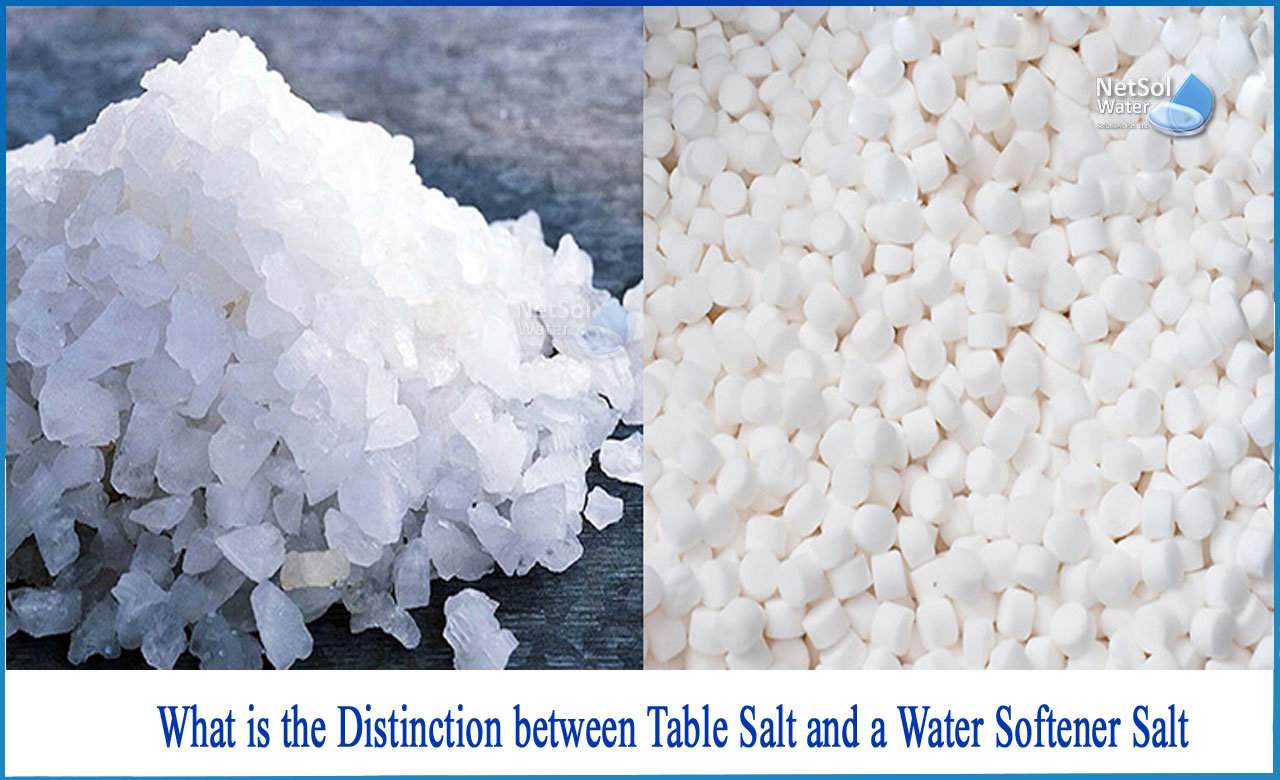What is the distinction between table salt and a Water Softener salt?
Even if you know that a water softener can help you with a variety of hard water problems, many people are still intrigued about what happens inside those tanks. One of the most commonly misunderstood subjects among homeowners is water softener salt!
"How much of this salt makes it into my drinking water?" When you carry a large bag of softener salt into your house to refill the brine tank, you might consider it.
In truth, water softeners do not add any salt to the water. The sodium is used once the salt is broken down in the water softening process. There's a difference to be made.
To be clear, salt, also known as sodium chloride (NaCl), is a sodium-containing material (Na). Salt is a chemical substance, whereas sodium is an element. Bread, pizza, cheese, and, of course, table salt is all high in sodium.
Water softener salts
Salt is an important component of any home water filtration system. It's a naturally occurring molecule that cleans your water by removing ions. These ions are what makes your water 'hard,' so the more you remove them, the softer your water will be.
When positively charged ions from hardening minerals like calcium and magnesium come into contact with your water softening salt, it bonds with them, eliminating them from your water supply and leaving you with fresh, clean water. Softener salt will be stored in a separate tank or compartment in your water softener. As the granules are eaten up by the system, you'll need to top up the salt level on a regular basis.
Regular table Salt
Using regular table salt in your water softener is generally not a smart idea!
The little grains will dissolve quickly, and your water softener will likely become less efficient as a result. It is preferable to use specialized water softener salt in your system rather than table salt.
Pellets, blocks, and crystals are the most common forms of specialist salt. The sort of salt you select will be determined by your budget, how often you use your softener, and how often you want to refill salt levels. You should monitor the level of salt in your system at least once a month, regardless of the type of salt you consume. If the salt level in your softener drops below a particular level, it may begin to perform less efficiently, resulting in harder water in your home.
Is regular table salt the same as water softener salt?
Regular table salt, which is used in everyday cooking, is formed entirely of sodium chloride minerals and iodine and contains no additional components. However, because they are not adequately cleaned, water softener salts contain unprocessed sodium chloride, potassium chloride, and several dirt particles. These dirt particles, on the other hand, are filtered inside the water softener, so you don't have to be concerned.
Calcium chloride is sometimes used in water softener salts. Regular table salt with iodine is mostly used to add other necessary minerals to salt, which are unlikely to be found in water softener salts because they are designed to remove minerals from water.
As a result, water softener salts and regular table salts are not interchangeable!
Conclusion
It is necessary to maintain your water softener on a regular basis in order for it to function properly. Maintaining your softener includes replenishing it with salt, which is an important component in the water softening process.
Netsol Water is Greater Noida-based leading water & wastewater treatment plant manufacturer. We are industry's most demanding company based on client review and work quality. We are known as best commercial RO plant manufacturers, industrial RO plant manufacturer, sewage treatment plant manufacturer, Water Softener Plant Manufacturers and effluent treatment plant manufacturers. Apart from this 24x7 customer support is our USP. Call on +91-9650608473, or write us at enquiry@netsolwater.com for any support, inquiry or product-purchase related query.



